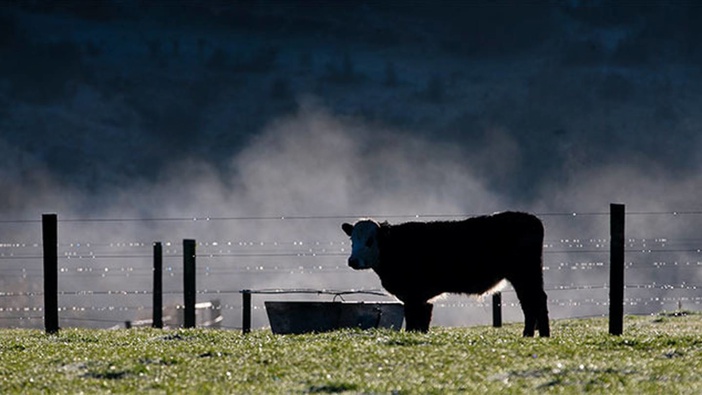The government has delayed bringing in regulations to control the controversial practice of intensive winter grazing after pressure from the farming industry.
Winter grazing is when livestock are kept in small sections of pasture until they completely finish off the crop and are at times, cramped and wallowing in mud.
The regulations to improve waterways and animal welfare were supposed to come into effect from May, but the government has deferred it until 2022.
Farmers had complained that the restrictions and requirements were impractical.
However, Environment Minister David Parker said farmers had agreed to make immediate improvements as a compromise for the delay.
Until May 2022 they had been asked to follow a farm plan.
"We are going to spend this year with the sectors testing the deployment of a prototype IWG module.
"I've got a commitment from the sector and regional councils to drive clearly demonstrable, real practice change this winter grazing season."
He said farmers had already been given a lot of help to make these changes, and it was the primary responsibility of those causing the pollution of rivers to clean them up.
The industry groups and regional councils had been asked to do more monitoring and provide a quarterly report on progress to the minister.
Greenpeace said the government's delay in implementing already-weak intensive winter grazing regulations was yet another example of them buckling to New Zealand's "dirtiest industry".
"Leaving a bad practice unregulated and thanking industry for their promises to make it slightly better is no substitute for getting rid of it, as the Government should be doing with intensive winter grazing."
National Party spokesman David Bennett was critical of the delay saying it was due to the process being rushed and the impracticality of the changes.
"This is the third time there's been changes to this set of regulations. Minister Parker clearly rushed the process, he didn't consult properly with the sector, and now he's having to delay for a year.
While farmers would welcome the delay, there was still a lot of work to be done to make sure any new regulations could actually be achieved, Bennett said.
"The Minister has developed a policy based on ideological notions and once again he has had to back down after realising it isn't practical or based in science.
Farmers showed up in their hundreds to tell Minister Parker his regulations were rushed and unachievable, Bennett said.
"But this playing for time gives no certainty or clarity around what farmers will be expected to have implemented by next year.
"The risk is that the Minister sets unachievable standards, opening up the prospect of the Intensive Water Grazing rules being implemented in Southland."
- RNZ/Otago Daily Times
Take your Radio, Podcasts and Music with you










